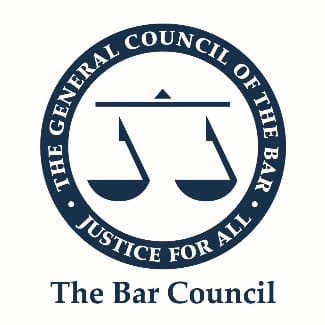A v M (No 2) [2024] EWFC 214
Judgment date: 01 August 2024
https://caselaw.nationalarchives.gov.uk/ewfc/2024/214
Sir Jonathan Cohen. Dispute over enforcement of a FR order giving W a share of the proceeds the husband received from a private equity fund where part of the investments in that fund were carried into a continuation fund.
On 25 January 2022, in A v M [2021] EWFC 89, Mostyn J made a final order in financial remedy proceedings between the husband and wife. The husband was a private equity professional who had invested in Funds I and II in a private equity firm, X Co. The order required the husband to pay to the wife lump sums based on percentages of his capital and income proceeds in Fund I. At paragraph 25, the order provided that the husband:
'shall pay to [the Wife] lump sums equal to 78.19% of all capital and income proceeds of or any other payments or receipts due or received by [the Husband] from time to time arising out of the Fund I Co-Invest share net of tax …'
And at paragraph 26:
‘48.53% of [exactly the same phraseology] arising out of the Fund I Carry share …’
The husband received his share of the proceeds from the sale of most of the assets in Fund I, and paid the wife her share in accordance with the terms of the order. However, a dispute between the parties arose when part of the husband’s investments in Fund I were not realised but transferred to a continuation fund (CF). A CF is used where a fund is ending but it has some assets left which cannot be sold or which it would be inadvisable to sell at the time in question.
The wife complained that she was not given the opportunity to transfer to the CF and was instead forcibly cashed out against what would have been her will, if she had known that the husband was to remain invested in the CF.
At [22], Cohen J described his ‘sole task’ as to construe the final order, i.e. whether or not the original order gave the wife an option to elect to carry over to the CF or whether the husband’s obligation was limited to paying the wife based on his receipts from the original Fund I investments.
The wife’s case ([29])
The wife’s case was that the whole rationale of the order was to give the husband time with his colleagues to build up the value of the assets in Fund I. No consideration was given to the possibility of the investments in Fund I being transferred to a CF, and it was inconceivable that the judge would have given to the husband alone the power to buy out the wife’s share at a time of his choosing. The wife should not be deprived of the opportunity of sharing in the growth of the husband’s assets nor be treated differently to any other investor.
The husband’s case ([29])
The husband characterised the order as a contingent lump sum order, not an order giving the wife an interest in any of the underlying assets. The words of paragraphs 25 and 26 were clear; the husband must pay lump sums equal to the proceeds ‘due to or received by [H] arising out of [the capital or income received]’. The husband received funds from the sale of his interest in the capital and the carry funds, and paid to the wife the full sum to which she was entitled in respect of these receipts. The husband argued he would be breaching the order if he were to roll over the wife’s proportion of what he invested in the CF, rather than paying her its value.
Applicable law
It was agreed that the applicable law was as summarised in Barnard v Brandon & Ors [2023] EWHC 3043 (Ch) by Richards J:
‘i) The sole question for the court is what the Trial Order means. Issues as to whether the Trial Order should have been made and, if so in what terms, are not relevant to construction. The court should not succumb to any temptation to stretch legal analysis to capture what are seen as the merits or lack of merits of the case that led to the making of the Trial Order.
ii) The words of the Trial Order are to be given their natural and ordinary meaning and are to be construed in their context, including their historical context, and with regard to the object of the Trial Order.
iii) The reasons the Judge gave for making the Trial Order in his judgment or judgments are an overt and authoritative statement of the circumstances which the Judge regarded as relevant. Those reasons are admissible for the purposes of construing the Trial Order.
iv) However, caution should be exercised before engaging in an excavation and analysis of the parties’ submissions to the Judge to discover their motives for seeking particular orders with a view to construing the Trial Order. That runs the risk of being a difficult and dubious exercise with parallels to admitting evidence of negotiations in construing a contract.’
Held
Sir Jonathan Cohen concluded at [32] that the order was clear that the husband’s obligation was to pay the appropriate percentage of the proceeds due to or received by him from the co-invest or carry funds net of tax and transactional costs. That is exactly what he did – the wife received full value for her interest. Having paid the wife, the fact that he invested, as a matter of obligation, some of the proceeds into the CF did not lead to any requirement for him to give the wife the same opportunity ([33]).
What had happened was unforeseen, but it did not follow that if Mostyn J had considered the establishment of a CF, he would have given the wife the opportunity to roll over her interest into the CF ([37]). The words of the order were clear, and that the event was not foreseen was not a ground for going behind the words of the order. There was no unfairness arising from how things turned out ([38]).
The wife’s application for a declaration that she was entitled to an interest in the CF was dismissed ([40]).





